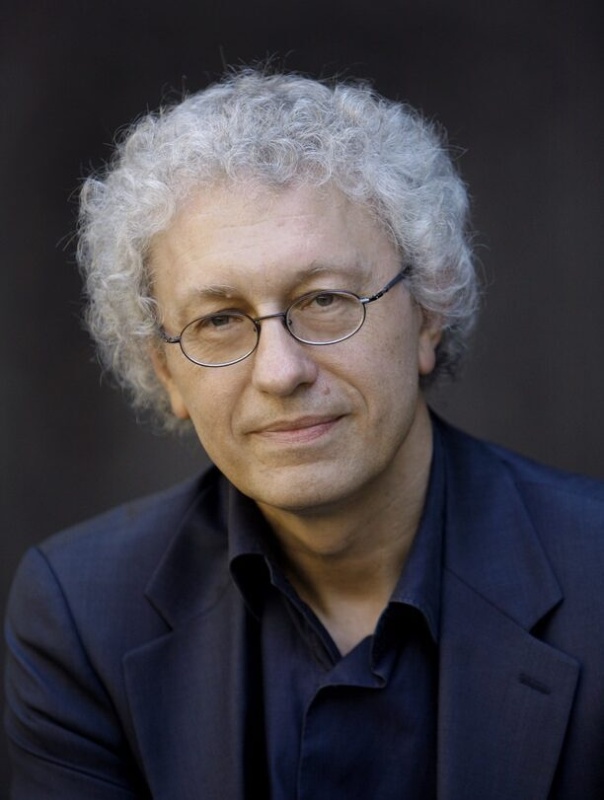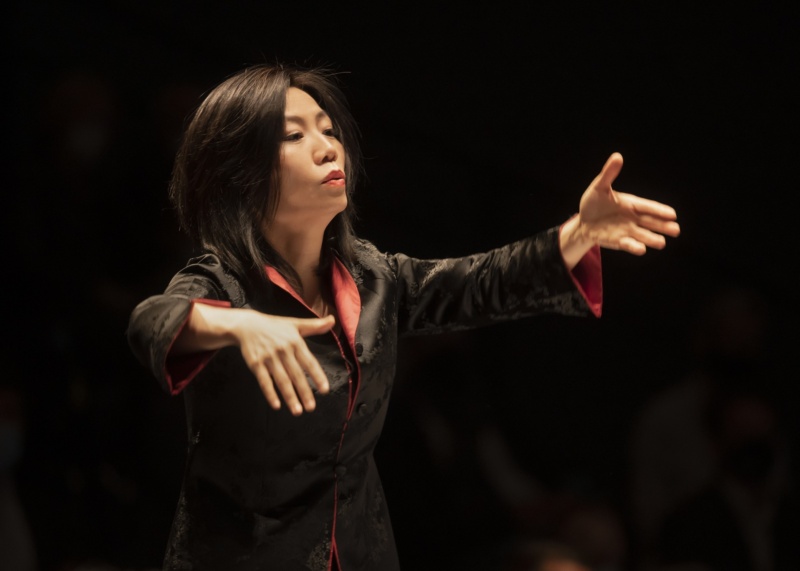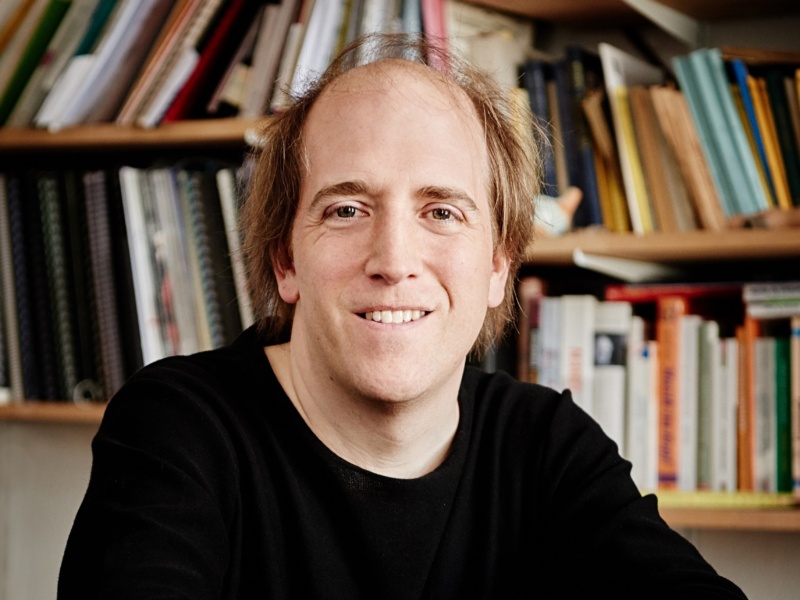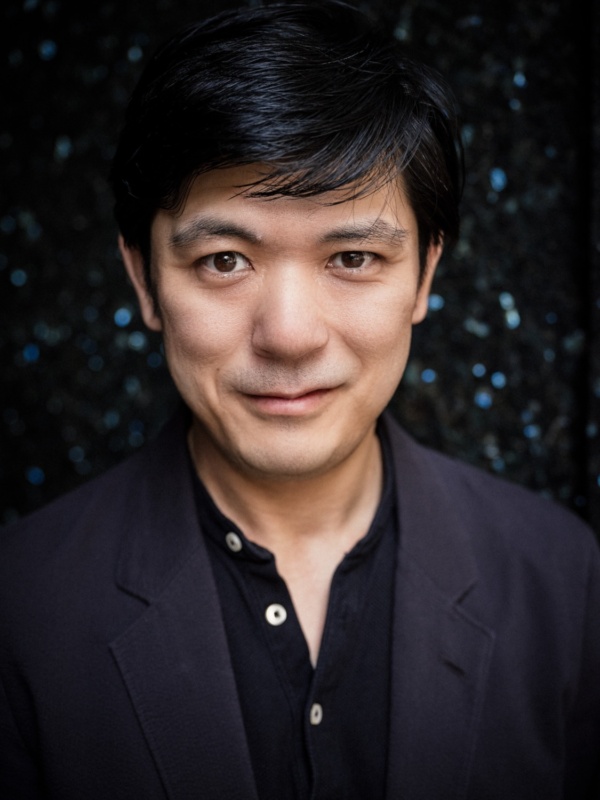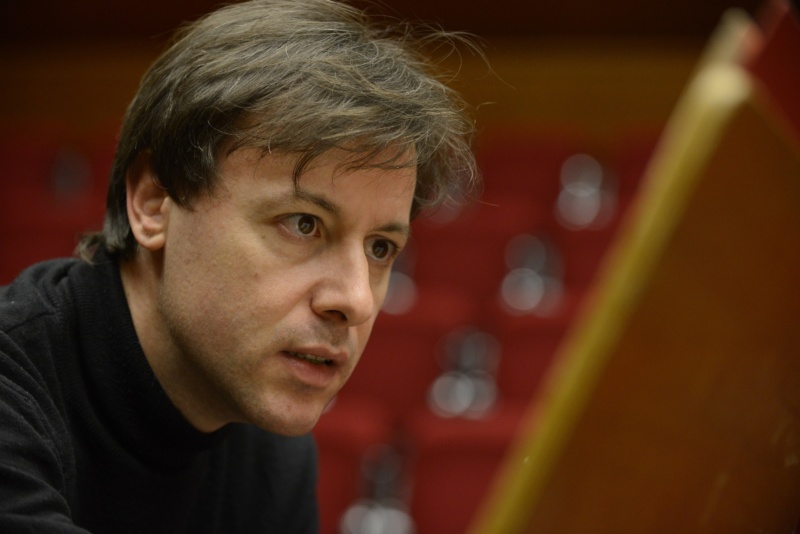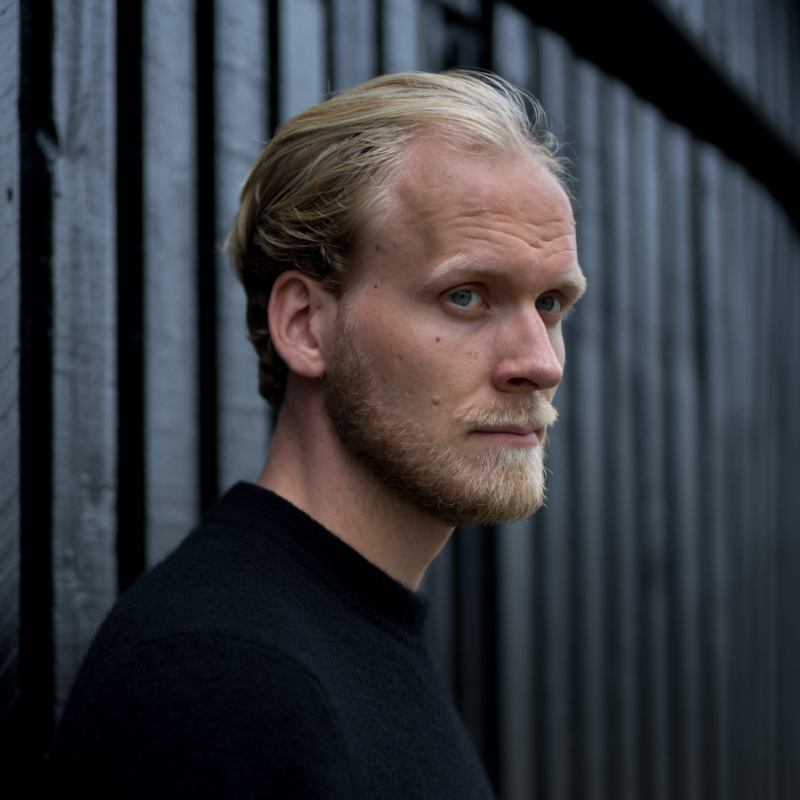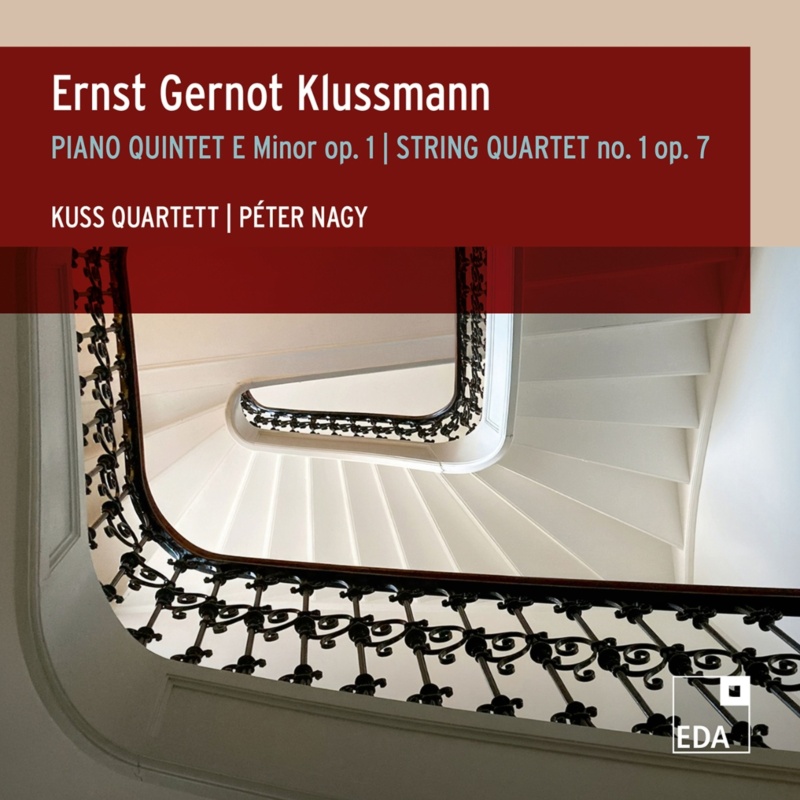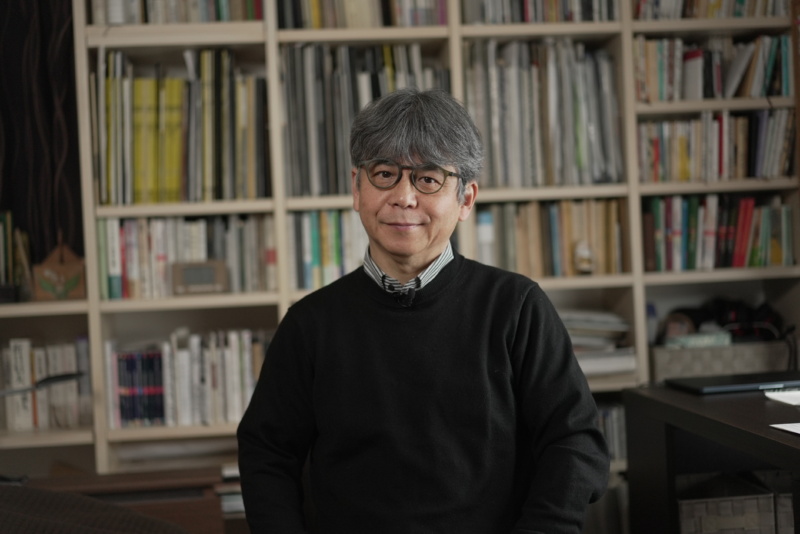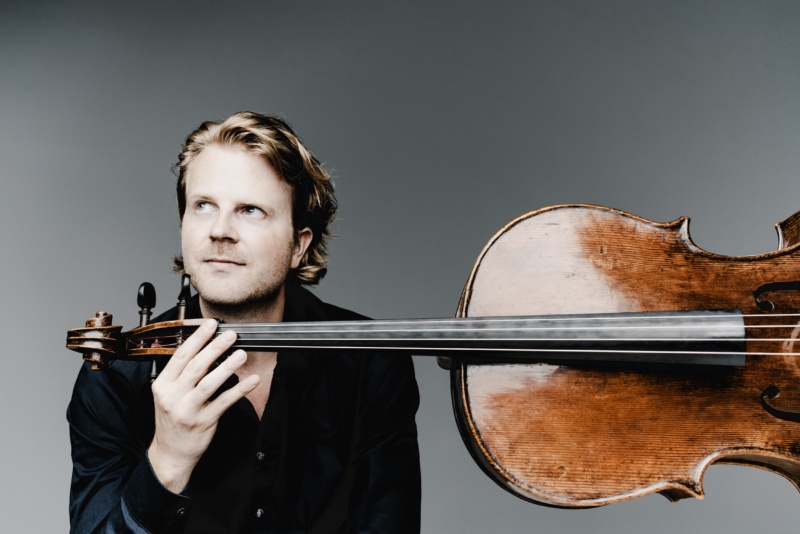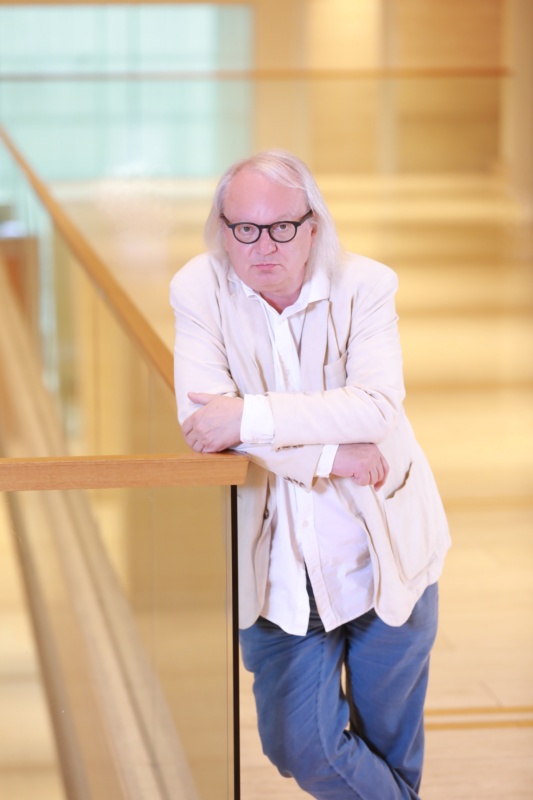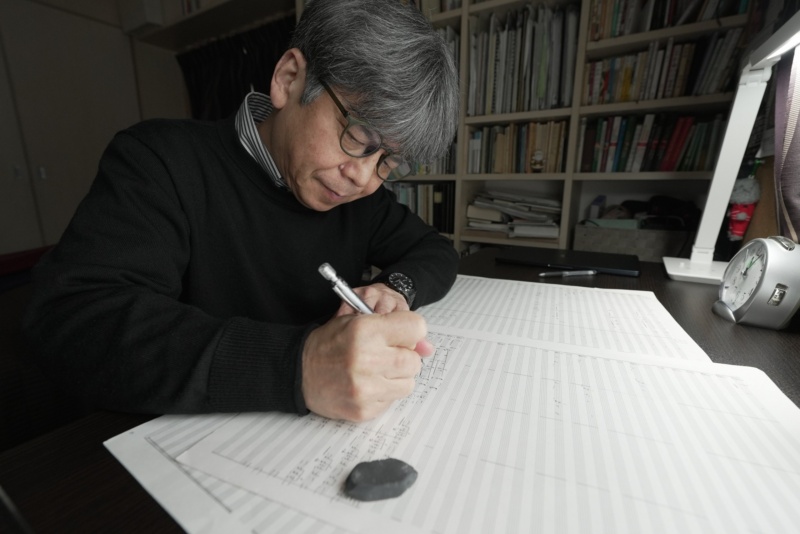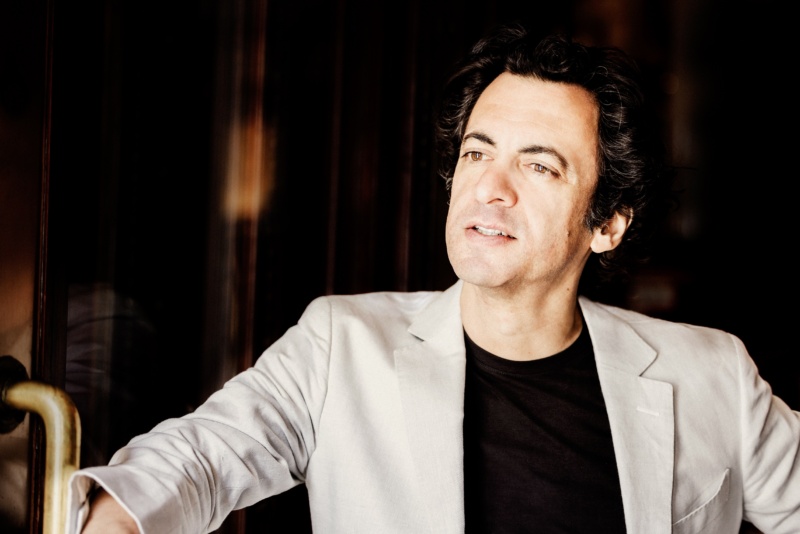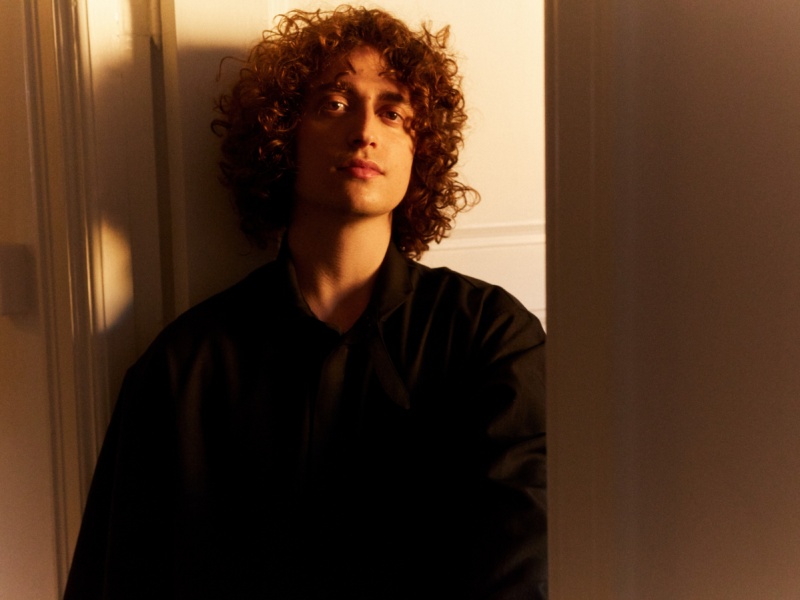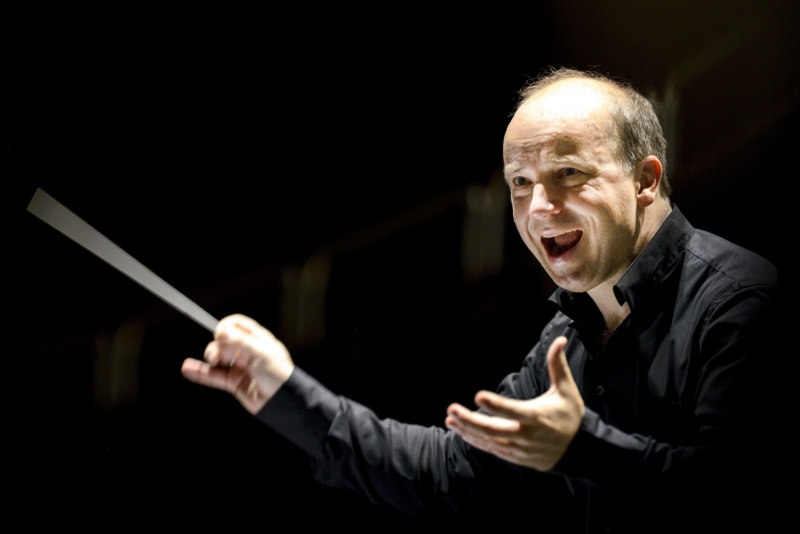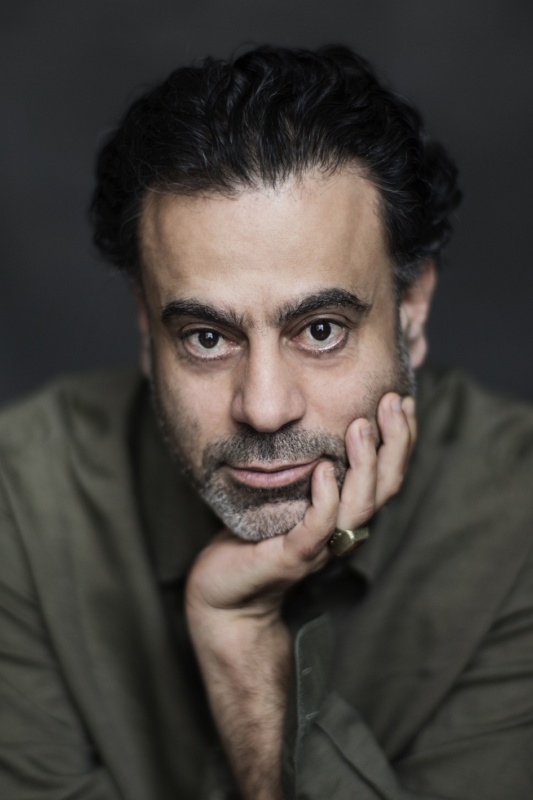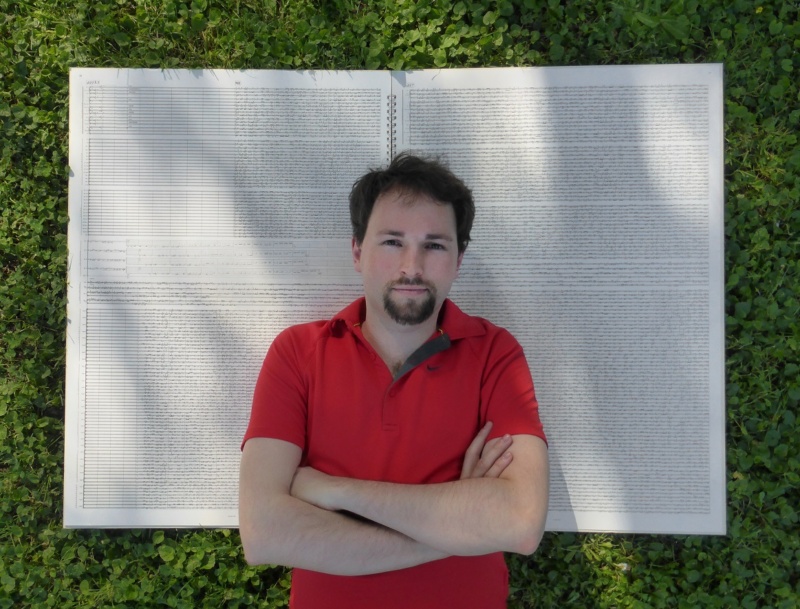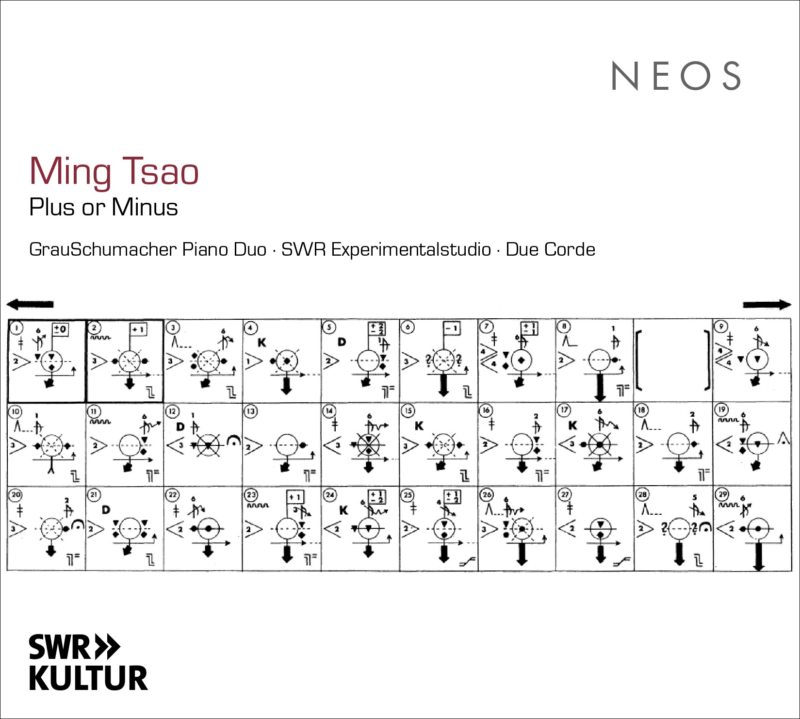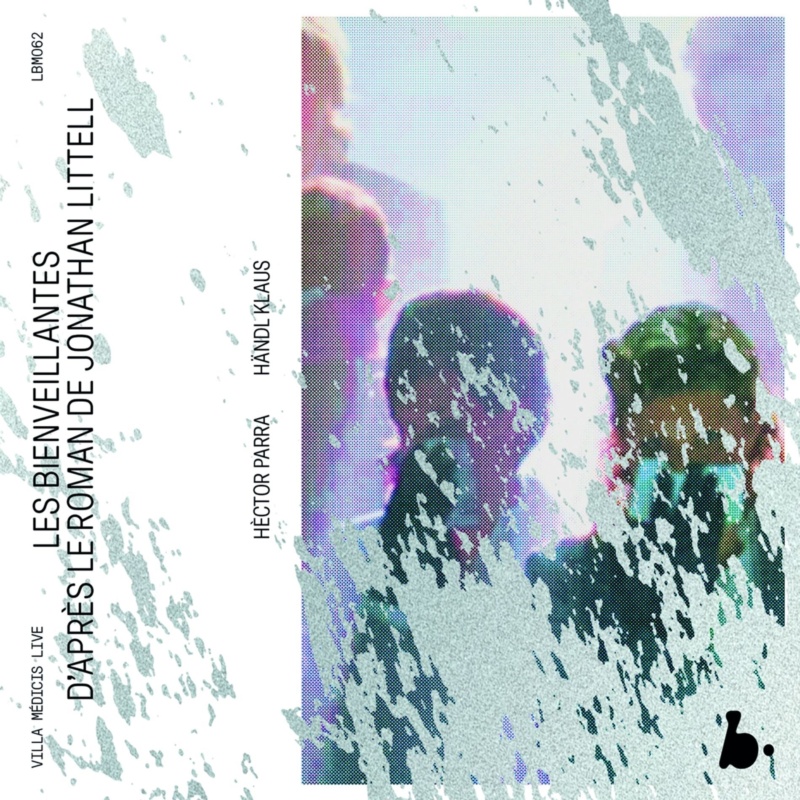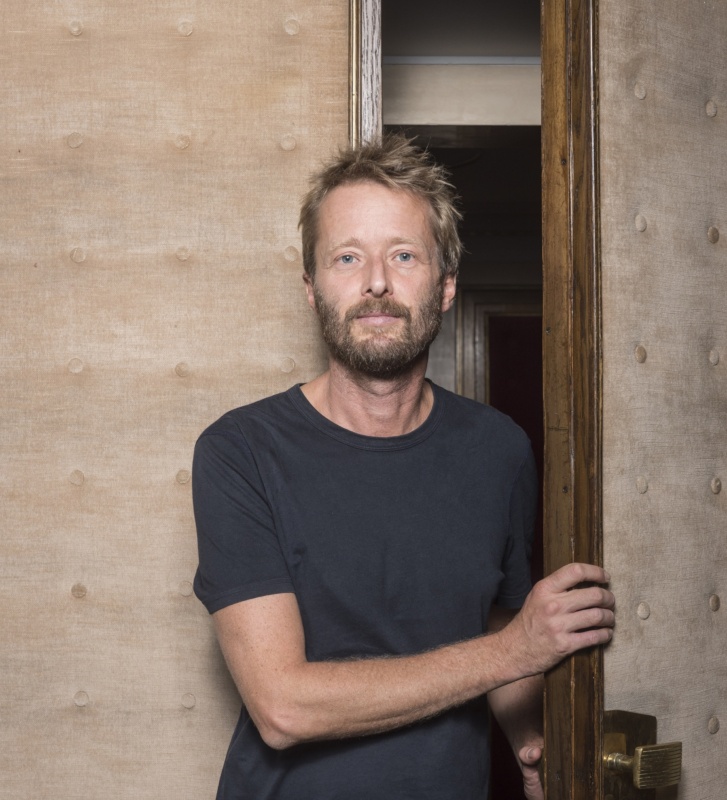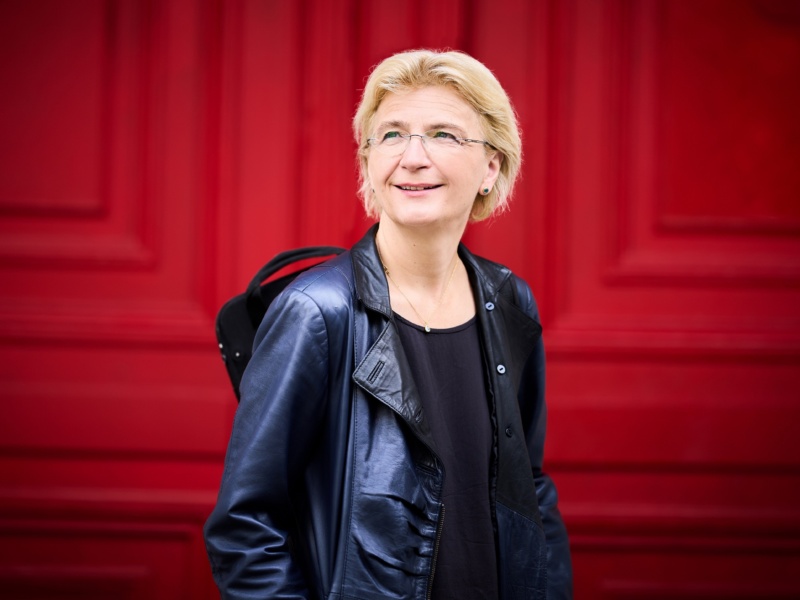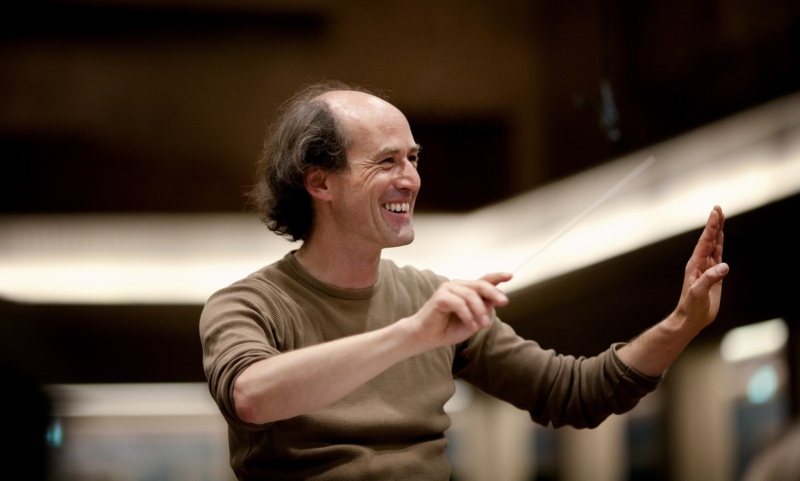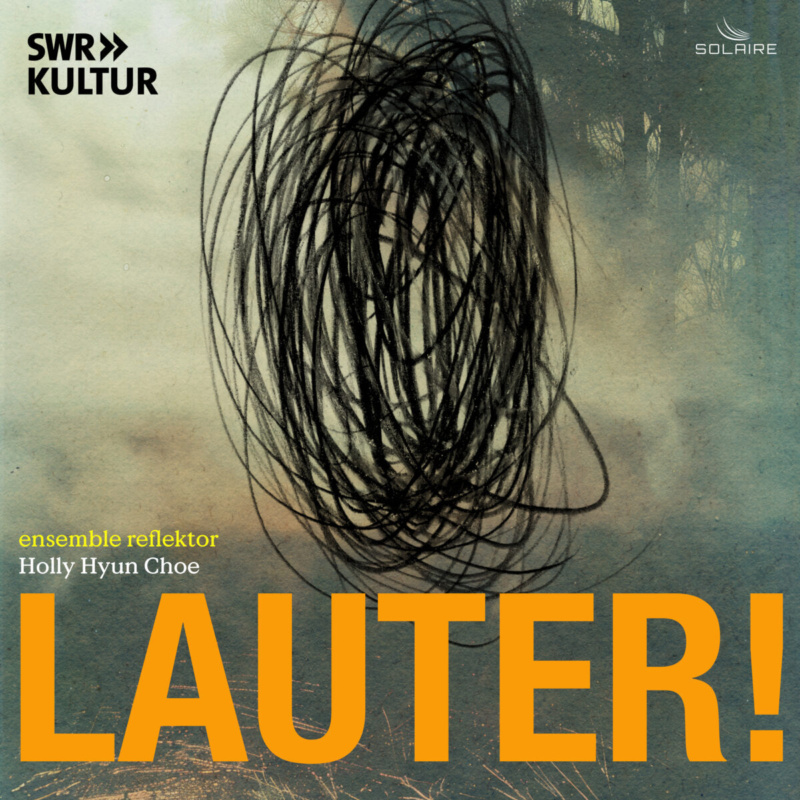She has just appeared on stage as Mireille in Giorgio Battistelli's opera 7 Minuti at the Opéra de Lyon before a semi-staged production of Cosí fan tutte by Thomas Hampson in Montreal. There she appeared as Despina and was once again praised as a Mozart interpreter for her ‘flawless stage presence and a voice that is appropriate and malleable in every situation’ (Le Devoir). What to other classical singers may seem like a wild mix of different engagements has long been part of Jenny Daviet's everyday artistic life and has not only characterised the spring of 2025. From the very beginning of her career, contemporary works have complimented the classical opera roles she sang as a member of the ensemble at the Opéra de Rouen, among others.
One of the first of these was Claude Vivier's Bouchara, which she performed for the first time in 2010 with the Ensemble Le Balcon. ‘Pierre Boulez was sitting in the audience, in the first row, right in front of me,’ she recalls the excitement of that evening. "I love the music of Claude Vivier. It's not aggressive - you can travel with it." The ensemble's second concert at the time was followed by further collaborations: As Eva in Stockhausen's Sonntag from the Licht cycle, she performed with Le Balcon at the Philharmonie de Paris, having already taken part in the performance of Freitag.
Mozart also became central to Jenny Daviet early on, who made her operatic debut as Pamina. ‘I think it's THE Mozart role for me,’ says the soprano about the part that opened many doors for her. She made her Asian debut as Pamina at the National Taichung Theatre in a production by William Kentridge, and before she had already caught the eye of François-Xavier Roth with her brilliant role, under whose direction she later sang Héro in Berlioz' Béatrice et Bénédict at the Cologne Opera.
Jenny Daviet's path to music was by no means predetermined. "My parents are not musicians, but even as a small child I sang a lot. As a librarian, my mum always brought me cassettes and CDs. I discovered Benjamin Britten by chance - his children's opera Le petit ramoneur, The Little Sweep. I was fascinated that children were singing there." This was followed by solfège, piano lessons and choir at the local conservatoire in Poitiers. Her piano teacher also recognised her special singing talent and encouraged her. In Paris, Jenny Daviet studied with Laurence Equilbey at the Conservatoire Regional Influence de Paris immediately after leaving school. "It was a course for young singers, and there were also theatre and dance lessons and three hours of choir a week. So it wasn't just singing lessons, but everything that had to do with working as a singer." Jenny Daviet's interest was fuelled by this versatility: "My dream was to be a singer. It's not just a job, it's my passion. I wanted to play, sing and dance."
The fact that all these aspects of the profession go hand in hand is still Jenny Daviet's core artistic conviction. "It takes time to find out what the essence of a role is. I immerse myself in the character, think a lot about the plot, try to develop my posture and my voice in this role - more like an actress," she explains her approach. "I want to be an interpreter and not just a singer. For me, the voice is only at the end of this process." With regard to her role in 7 Minuti, she continues: “You have to convince the audience that you are Mireille, that you are aggressive and racist, and that you are not Jenny singing Mireille.” The numerous reviews, which consistently emphasise Jenny Daviet's vocal performance as well as her acting charisma on stage, show how well this worked out in Lyon.
Even for recital and concert repertoire, Jenny Daviet relies on her special kind of preparation. "When I developed the Messiaen programme with my pianist Alphonse Cemin, for example, we took a lot of time: We read the texts together, I sat at the table for a long time with my score. I want to understand the composer's story, including what challenged him, and I work a lot with the text, the words." Successes such as her highly acclaimed interpretation of Messiaen's Poèmes pour Mi with Kent Nagano and the Bavarian Radio Symphony Orchestra, which has also been released on CD, prove her right in her approach of developing a voice from the poetic context, the inner dramaturgy of a work.
Jenny Daviet's dream for the more distant future appears to be a logical continuation of this approach: ‘I would like to work as a director,’ she says, adding with a laugh: ‘When I'm much older.’ Firstly, there are concrete repertoire dreams that tie in more closely with her current work. Jenny Daviet had already fully rehearsed and rehearsed one outstanding role: her debut as Nadja in Georg Friedrich Haas' Bluthaus at the Opéra de Lyon was planned for 2023, but was cancelled at the last minute due to the general strike in France - a huge disappointment for the singer, who is hoping for a new opportunity for this role.
Another wish is also connected to a recent collaboration. Having been in close contact with George Benjamin on several occasions for her interpretations of his chamber opera Into the Little Hill with the Ensemble intercontemporain at the Festival Ravel and before that at the Théâtre de Caen and the Teatro del Canal in Madrid, the premiere of a new work from his pen is right at the top of her wish list. And last but not least, Jenny Daviet would love to take to the stage as Lulu. ‘I love Alban Berg's music, and the role is highly interesting.’ The common denominator for these wishes may be the complexity of the characters, whether Nadja, Lulu or completely new roles: a welcome challenge for the singer, the actress - the interpreter.
Nina Rohlfs, 5/2025
Interview: Karsten Witt, 4/2025

